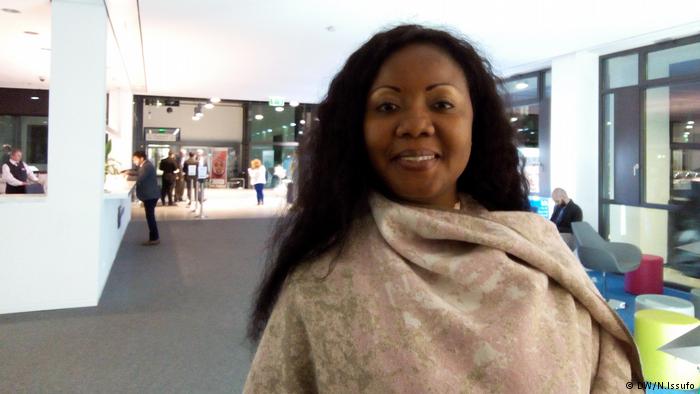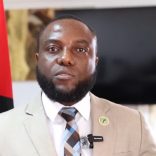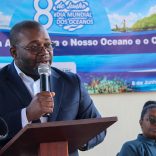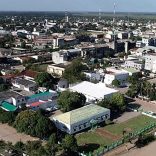Coral-rich Northern Mozambique Channel just became a UN World Restoration Flagship - Comoros, ...
PAP MPs attend UN climate talks in Bonn: “Blaming the foreigner is evading responsibility” – Soares

DW
Pan-African Parliament (PAP) member and chief whip of the Renamo bench in the Mozambican parliament Ivone Soares, participated in the UN Climate Conference (COP23) in Bonn, Germany.
The Pan-African Parliament was a participant in COP23, where the group organised events discussing the role of its MPs in combating climate change.
Soares, first deputy president for youth in the Pan-African Parliament, said she regrets that many ratified agreements regarding the fight against climate change are not implemented in African countries.
In an exclusive interview with DW Africa, she reveals says the Pan-African Parliament has the power to persuade governments to be more proactive.
DW Africa: What priorities have been set at the conference for African countries?
Ivone Soares (IS): I focused on the need for greater mitigation, so that people see that Africa can contribute to reducing carbon emissions. I spoke of the need to not be a victim in this climate change process, as there was a trend among parliamentarians who argued that we as Africans have to be compensated for all the situations created by Westerners in exploiting our resources and which have worsened climate change in our countries.
The Chinese, for example, can come to any of the African countries and harvest trees to obtain wood, but for the Chinese to enter our countries, someone has opened the doors. Therefore, as we become victims, we are trying to evade our responsibility for having contributed to the over-exploitation of our resources.
DW Africa: What would be the requirements to assume this role, if the responsibility is domestic and not only that of foreigners?
IS: I believe we have to demand the implementation of the various agreements that have been signed. We have to assume that as African leaders, as an African people, at some point we put our resources at the disposal of anyone who wants to come and exploit them. I also thought it important to raise during COP23 an issue that has to do with the need for the Pan-African Parliament to play a more active role in raising member states’ awareness so that each member state has a concrete plan of action to mitigate evils that climate change can bring.
DW: But at the level of the African Parliament, what are the initiatives in place to mitigate these effects?
IS: What we have done is persuade member states to be signatories to the various protocols we are ratifying. When we have, for example, the Paris Accord, which many countries have not yet adopted, it shows that these nations are not really committed to the suggestions that we, as parliamentarians, are giving.

DW: What has been the reaction of these member states to your appeals?
IS: Some member states cooperate, ratify the conventions and show themselves active. They have created or are implementing action plans. But there are African Union member states that do are not complying, mainly because we do not yet have a legislative body with powers to impose laws.
So our big challenge is to ensure that member states ratify the power that the Pan-African Parliament, to put it simply, needs to have: legislative power. We do not yet have the power to determine what states should do.
DW: As a member of the Mozambican parliament for the largest opposition party, Renamo, how do you see the approach to climate change in the assembly? Or is this subject not discussed?
IS: The issue is discussed, for example, in the [Parliamentary] Commission on Agriculture. The issue is not overlooked. What remains to be done is for the government to take measures to take climate change into account. However, we must also ensure that all 250 MPs understand what we are talking about when we talk about climate change. Work should start at home, in parliament. Once we have ensured that they understand, we have to ensure that they are empowered, and provided with relevant information in down-to-earth language.
DW: Do you think there is enough sensitivity in Mozambique to deal with these issues?
IS: I think so, I think people understand. Maybe not all of them, but those in decision-making roles have an obligation to understand. But some may understand and still not add anything that might help the country to take preventative action.













Leave a Reply
Be the First to Comment!
You must be logged in to post a comment.
You must be logged in to post a comment.